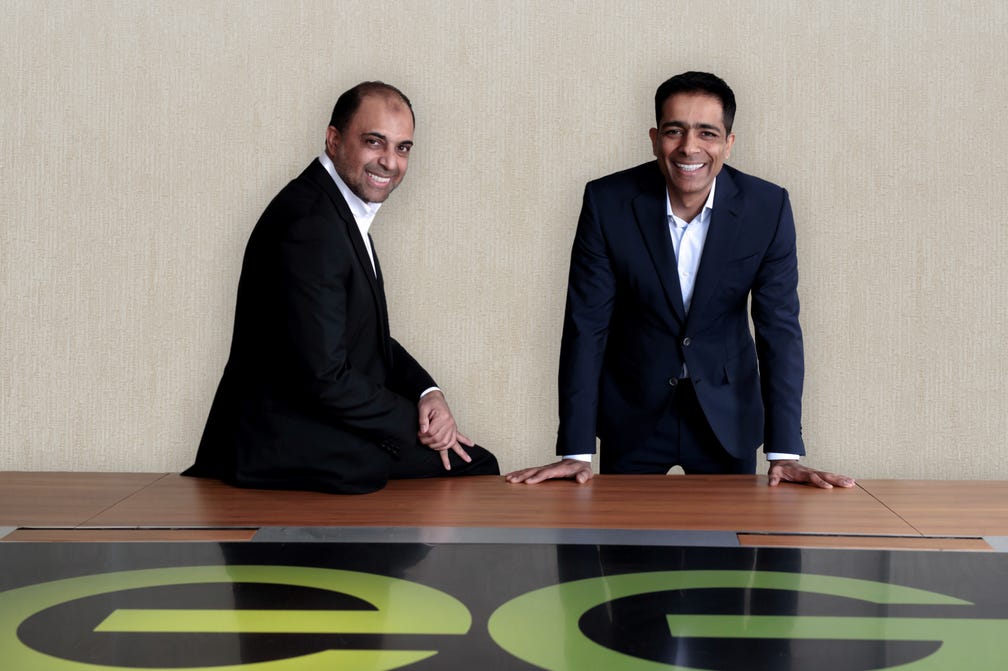The looming war with big bad private equity
Union anger over Asda takeover is a foretaste of coming clashes in many sectors
Hello Rainmakers,
Last week we showed the efforts that had been made in the private equity and venture capital world to woo the Labour party, in anticipation of them forming a government in July.
While this week we’ve focused on a couple of deeper dives on the regional deals market, with the very popular story about John Whelan putting his metaphorical balls in the blender to buy out his VC backer, and James Darlington polishing up his new office with an ambitious start-up, Vertex.
Next week might be worth looking at the sectors that could very tasty if Labour get in, health and social care, and critical infrastructure.
And on top of the list will be what I call ‘big bad private equity’ - and the tighter grip that highly leveraged TDR has on one of our biggest food retailers, Asda.
Thanks for being a subscriber to Rainmakers. Your support has encouraged us to expand the coverage, deepen the insights and take the platform to the rest of the UK. Don’t worry, it will still be ferociously chippy and regional.
Read on for more lively insights into the world of regional M&A.
::
The majority stake in Asda by private equity firm, TDR Capital, after taking on the shares of Zuber Issa, co-founder of Blackburn-based EG Group, has been criticised by the GMB trade union, whose national officer, Nadine Houghton, said: “TDR Capital has serious questions to answer about their asset-stripping of Asda.
“Their private equity ownership has already been bad for consumers – with Asda now the most expensive retailer for fuel – and bad for staff, with millions of working hours cut from the shop floor.
“Further involvement from TDR can only spell more bad news. Bosses must change course to protect Asda workers and stop this British retailer further losing more market share.”
In a separate move, Zuber Issa announced today (June 7) that he has paid £228m in a deal to take control of EG Group’s remaining UK forecourts business.
TDR Capital, alongside brothers Zuber and Mohsin Issa, founders of EG Group, took control of Asda in 2021 following a £6.8bn deal.
Today, Asda announced the new ownership structure.
Mohsin Issa remains a co-owner in Leeds-based Asda alongside TDR Capital. This brings the ownership of Asda to 67.5% by TDR Capital, 22.5% by Mohsin Issa, and 10% by Walmart Inc. The transaction for Zuber Issa’s stake is set to complete in the third quarter of this year.
::
One sector at the heart of policy change is definitely health and social care, and yes I do band them together.
We’ve seen a few regional deals in this space, just this week.
Digital health pioneer Inhealthcare has been bought by Californian medical equipment giant ResMed, TheBusinessDesk.com revealed earlier in the week.
It is listed on the New York Stock Exchange and has a market value of $30bn (£24bn). The company’s UK operations had revenues of £65m and about 100 staff in its latest published accounts, for the year to June 2022.
It was founded in 2012 by Yorkshire entrepreneur Peter Wilkinson, who turned 70 last month.
In a statement, Inhealthcare’s chief executive Bryn Sage said: “By joining forces, we will be able to expand service offerings, scale operations and extend impact on patient care throughout the UK.”
Wakefield-headquartered business, Strong Life Care, has bought its fifth purpose built care home, Hesslewood House Care Home in Hessle.
The multi-million pound acquisition has been made possible though a finance package provided by NatWest.
While Bolton based private healthcare service provider ABL Health has been sold to Bay Tree Private Equity.
That deal represents an exit for investor Foresight which first invested in ABL in 2018 with a strategy of growing regional coverage and a range of services.
You are unlikely to see any of the optimistic sentiment behind these deals appearing on a Labour campaign poster, but they will need private capacity to cut NHS waiting lists.
::
Also on a political theme, Michael Gibson of Fuuse used the occasion of his company’s successful funding round for their Electric Vehicle platform to highlight the lack of an industrial strategy in this emerging space.
Based in Lancaster and employing over 60 staff, Fuuse serves over 750 clients and over 70,000 active users.
It also processes enough electricity each year to power the whole of the UK for an hour, and probably Rishi Sunak’s swimming pool at his home in North Yorkshire.
According to Fuuse, the role of government is crucial to the evolution of the electric vehicle industry. While the UK government has done a lot of work, particularly through the Office of Zero Emission Vehicles (OZEV), Fuuse believes more can be done.
But Gibson, a thoughtful and articulate business leader in Lancashire, who is always worth listening to, said the good work in the UK around adoption and infrastructure for electric vehicles now needs to be stepped up by the next government.
“A clear industrial strategy and policy framework to develop a home-grown EV supply chain in the UK is vital; a reduction in VAT to 5%, the same as domestic electricity, on commercial charging will empower adoption and growth; and a reversal of the decision to move the end of the sale of petrol and diesel vehicles to 2035 will lead to increased domestic and international investment, as well as reducing CO2 emissions and air pollution,” he told me.
Fuuse is also a partner in several grant-funded projects to optimise energy consumption and reduce costs through bi-directional charging or vehicle-to-grid (V2G).
::
We’ve also seen yet more change in the professional services market with French owned accountancy firm Mazars hooking up with an American network to create Forvis Mazars, a £3.9bn ($4.7bn) global network.
It’s but the latest twist in the ongoing shake-up of the wider professional services market, with the firm one of a group just below the “Big Four” looking to win audit work.
Up the road in Blackburn though, PM+M, which was founded in 1919 and has offices in Blackburn and Bury as well as an innovation hub within the Apex Centre at The Landmark in Burnley, is committed to remaining fully independent.
Firms of similar size to PM+M have been targets for consolidators in the accountancy sector, such as Azets, Sumer and Xeinadin, who have been particularly active in the North West.
Over the past 12 months, the firm has appointed Helen Clayton (above) as its new managing partner following the retirement of Jane Parry who was in post for over eight years.
She told TheBusinessDesk.com that staying fully independent is “incredibly important” to the firm.
“We are approached regularly regarding a sale or private equity investment. Our experience is that remaining a strong, independent firm in our profession is now a USP and we know that our focus on people enables their personal growth to secure future succession. That strategy – and our independence – won’t be changing and it’s something that we are proud of.”
::
Thank you for subscribing to Rainmakers.
We believe in good journalism that is worthy of your support. Please share this edition of Rainmakers so we can grow the message further and wider.
The insights and commentary we share with you are rooted in the trust we have built in the business community.
We’re also on LinkedIn - please join our Rainmakers community group for updates and offers and opportunities to comment.
If you have something you think we should look at, then either reply to this newsletter or email michael.taylor@thebusinessdesk.com.









